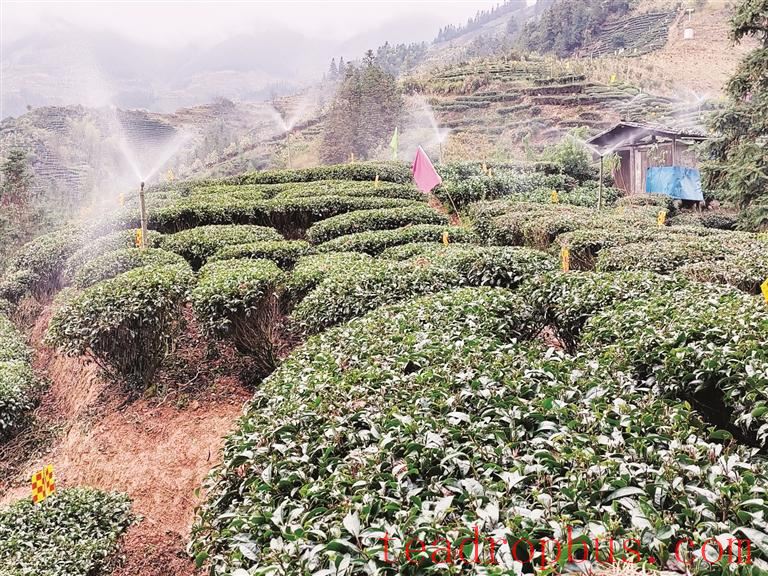During a recent visit to locations such as Sanjiang Dong Autonomous County, organized by the Municipal Agricultural Mechanization Management Center (hereafter referred to as the Municipal Agricultural Mechanization Center), experts suggested that, in line with our city's approach of developing modern agriculture with an industrial mindset and a focus on the entire supply chain, introducing new machinery, technologies, and methods for Tea production could advance the high-quality development of the local tea industry.

Tea Garden with Integrated Water and Fertilizer Irrigation System
Recently, at a Tea processing base in Guyi Town, Sanjiang Dong Autonomous County, freshly picked tea leaves were undergoing processes such as fixation, rolling, fermentation, and drying. Workers on site explained that in the past, all stages of tea processing were done manually, requiring multiple people to collaborate on each step, making it difficult to control the temperature during fixation, resulting in low production efficiency, low product quality, and high production costs. Now, with the adoption of mechanized and smart production equipment and techniques, production is managed by people overseeing machines, ensuring consistent quality and quantity, and consumers can trace the origin of the tea via QR codes on their smartphones. “By integrating Internet of Things (IoT) technology, we have connected facilities for integrated water and fertilizer irrigation and monitoring, allowing one person to manage 200 mu of tea garden while continuously monitoring parameters such as temperature, humidity, and sunlight intensity to optimize the growth environment for tea trees,” said Wu Guojun, head of a local tea company in Sanjiang. He added that the standardization, mechanization, and smartification of tea planting, processing, and packaging not only reduce costs and improve efficiency but also enhance the quality of the tea.
As of June this year, the total area of tea plantations in the city reached 268,200 mu, with the output of dry tea amounting to 10,900 tons. There are over 500 cooperatives engaged in tea processing, involving more than 350,000 people in the tea industry. The number of various types of tea production and processing machinery totals over 20,000 units, showing stable growth compared to last year.
“The integrated application of computer and network technology, IoT technology, and other smart technologies in agriculture enables remote visualization, diagnosis, and control, as well as intelligent management, improving the productivity of labor, land, technology, data, and other factors, gradually forming a new type of productive force,” explained a relevant official from the Municipal Agricultural Mechanization Center. In recent years, our city has supported numerous farmers' cooperatives and tea processing enterprises through a model of providing subsidies after construction. By introducing new machinery, technologies, and methods for tea processing, these efforts have guided farmers' cooperatives, family farms, and tea plantation and processing enterprises to adopt new models of moderately scaled processing and management. This has continuously advanced tea processing technology, improved the efficiency and quality of tea production, facilitated agricultural growth and farmer income, and contributed to rural revitalization.